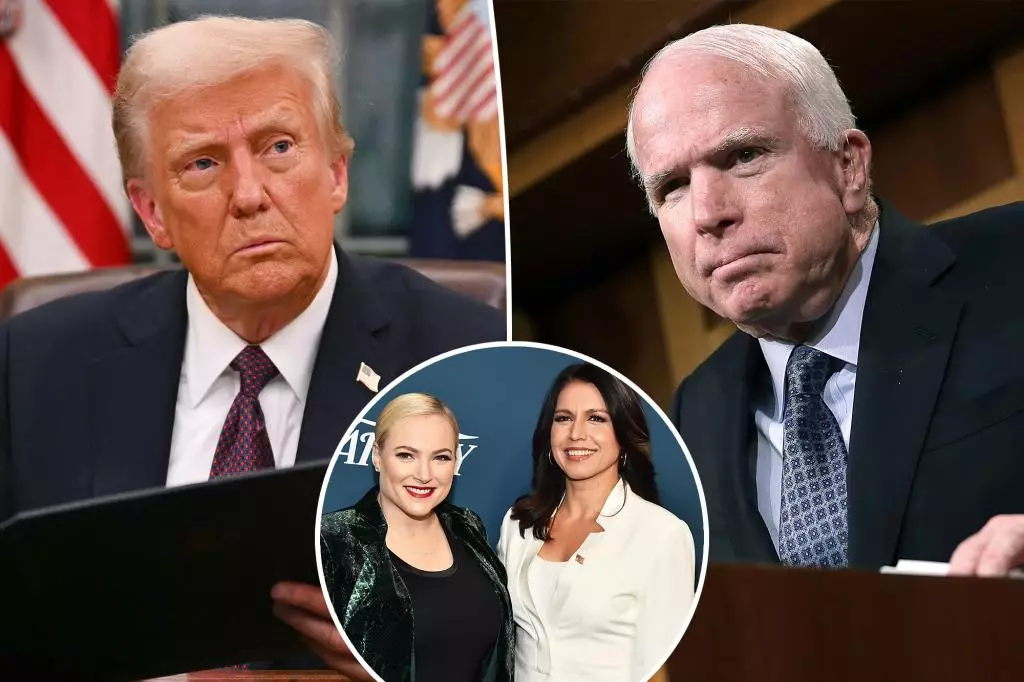The contentious relationship between former President Donald Trump and late Senator John McCain has been a focal point of American political drama since 2015. This feud ignited when Trump publicly dismissed McCain’s valor as a prisoner of war, famously stating, “I like people who weren’t captured.” This inflammatory remark set the stage for a protracted battle of words and a deepening rift between two significant figures in American politics. The culmination of this conflict was marked by McCain’s funeral in 2018, where Trump was pointedly absent, stirring the ire of McCain’s family and supporters who felt the president’s absence was a blatant affront.
In the years following McCain’s passing, his daughter Meghan McCain, a prominent political commentator, emerged as a vocal critic of Trump. Her steadfast defense of her father turned personal when she labeled Trump as “a piece of sh*t” and questioned his ethics and legitimacy as an election-denying leader. Likewise, McCain’s widow, Cindy, expressed her grievances about Trump’s treatment of her husband and his legacy, revealing a sense of unresolved anger that lingered long after the senator’s death. Such sentiments encapsulated the broader divide within the political landscape, pitting traditionalists against more populist tendencies represented by Trump.
However, political dynamics can be surprising, and the recent developments involving Tulsi Gabbard—a former Democratic Congresswoman and friend of Meghan McCain—signal an intriguing shift in this narrative. Gabbard’s appointment as Director of National Intelligence required bipartisan support, and Meghan’s advocacy played a crucial role in garnering that backing. Her efforts included campaigning among senators and engaging with media outlets to rally support for Gabbard, demonstrating a newfound willingness to collaborate across party lines.
The outreach did not go unnoticed by the Trump administration. Reports surfaced indicating that the White House recognized Meghan’s contributions by expressing gratitude for her role in securing Gabbard’s confirmation. This recognition culminated in an invitation for Meghan and her husband, Ben Domenech, to Gabbard’s swearing-in ceremony. It is remarkably telling that a familial friendship has the power to transcend years of animosity, suggesting that personal relationships can influence the course of political alliances, even among figures who were once at odds.
By the end of this week, Meghan reportedly received a personal message of thanks from Trump, delivered through an aide. This act of acknowledgment marks a potential thaw in a previously icy relationship and showcases the complexities within political affiliations. In an era characterized by divisiveness and polarized opinions, such reconnections serve as poignant reminders that collaboration is not only possible but essential for progressive governance. Ultimately, this unfolding story illustrates how shared goals and personal convictions can diminish longstanding rivalries, reshaping relationships in unforeseen ways.
